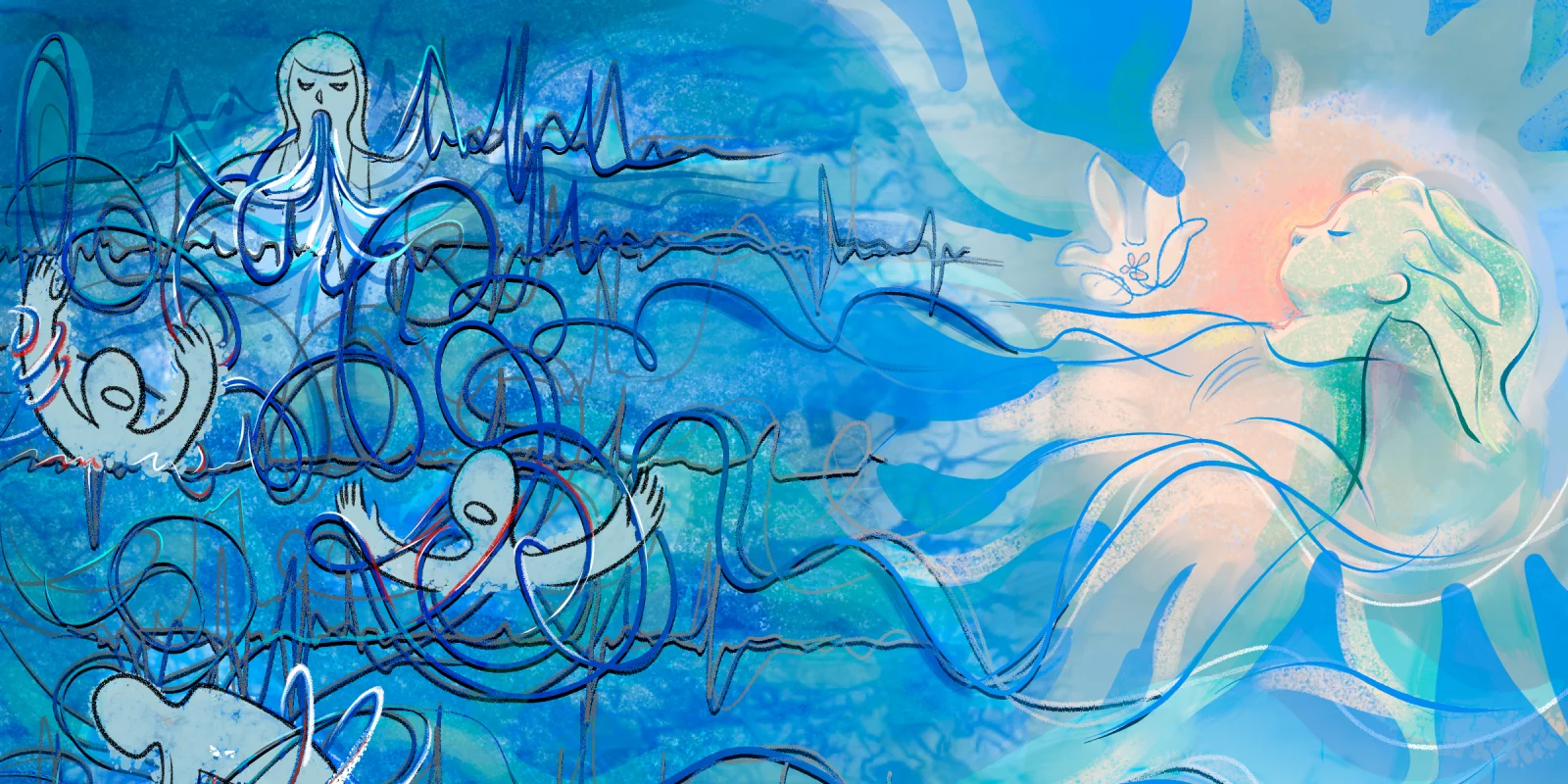This is part of the Medical Humanities series on Op-Med, which showcases creative work by Doximity members. Do you have a creative work related to your medical practice that you’d like to share? Send it to us here.
We sit in a makeshift ring
under fluorescent lights,
halfway into the allotted one hour
before we realize that we are having
a conversation born a decade ago.
He leads us to the day he died
and began again, unwillingly
made wise to the depth that the scalpel may cut —
through the skin and muscles
of his second youngest daughter,
all the way into his own heart.
To describe the gash it left
as a remnant is too forgiving; he bleeds,
unhealed.
“I will lose no more,”
he interrupts and cries,
silencing the translator
without imprint
on the urges of the doctors.
The third time he repeats himself,
his face is dry,
and still,
and cold —
“no more.”
Outside the door,
we turn right
as he turns left,
and the projection of his weeping soul
lingers in the room
to play out the allotted one hour.
No surgery is scheduled
for the little boy down the hall
who crouches over a toy car
and runs it over bumps in the carpet,
waiting for his father.
What was your inspiration? Did other creative works, if any, influence your creation of this piece?
I wrote this poem after taking part in a meeting between two attendings and a pediatric patient's parents, recent refugees to the United States who had refused a highly recommended prophylactic surgery for their son. The purpose of the meeting was to further explain the recommendation to the patient's parents and ultimately convince them that the surgery would be in the patient's best interest.
During the meeting, the parents continued to deny consent to the surgery, which increasingly frustrated the attendings. Largely due to language barriers, despite the presence of a translator, the attendings interpreted the parents’ decision as a misunderstanding of the surgery itself. It was not until further into the meeting that an underlying reason behind the parents’ steadfast refusal was uncovered: the family had lost another child during surgery in their home country 10 years ago. They had lost faith in the benefits of operations, and they were, above all, terrified of losing another child. At this point, however, the attendings were so frustrated by the parents’ denial of their son’s current needs that this vulnerable piece of their “why” was barely addressed, and communication soon broke down. I believe that addressing the family’s loss and its connection to the ongoing situation in a compassionate, empathetic way could have bridged trust with these parents, who were otherwise deemed to be “difficult.” I deeply respect the attendings I worked with but felt that this was a sadly missed opportunity. My heart aches for both this family’s tragic loss and for the outcome of the conversation.
How long have you been doing this activity? What got you started? How do you relate it to your medical practice?
I began using writing in college as a tool in navigating a personal loss that I struggled to process. In medical school, it transformed into an outlet that has allowed me to stay grounded in my experiences and capture memories of patients and situations I encounter. I love that writing forces me to recall and therefore pay close attention to the details of the world and the people around me both on and off the wards. For me, it is a way of honoring the fundamental human experience that binds me and the patients I meet.
Why did you choose this medium? What interests you about it?
I love how deliberate poetry is as a form of narrative, and I liked the challenge it presented of using few strokes to capture an entire scene and intangible essences. I love reading and writing poems for the same reason. Although they’re often shorter in length than pieces of prose, poems reveal an incredible amount of information about the writer because every detail in its construction is so deliberate. It’s a deeply personal and vulnerable experience to read someone’s poem and then write one yourself. Writing poems to process my experiences in medicine helps me stay rooted in the reasons why I first decided to pursue a life in this field. It challenges me to pay close attention to the details of the people I meet and the stories they bring with them beyond what my clinical duties might demand; this helps me be a more present, whole person both on and off the floors.
Sharon Hsu is a third-year medical student at Albany Medical College in Albany, NY.
Illustration by April Brust







